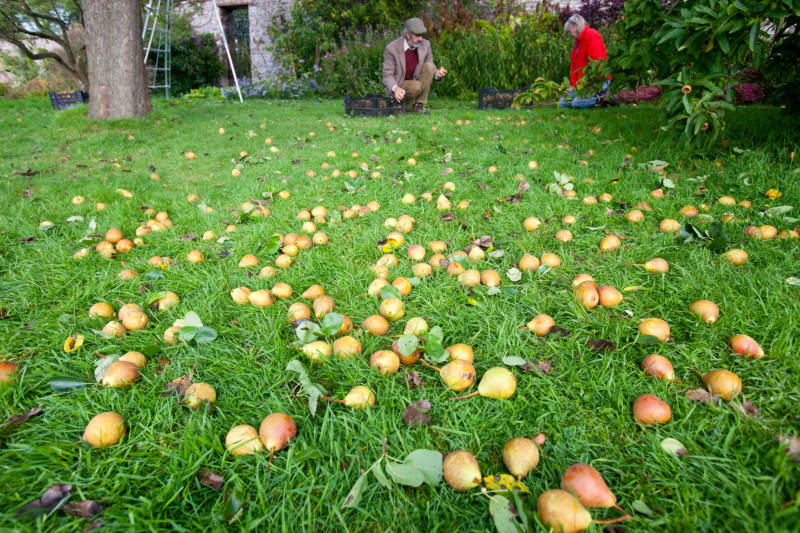It was a cool morning in the spring of 2004 when Charles McGonegal, owner of AEppeltreow Winery in Burlington, Wis., bit into his first "perry" pear: crunching into the tough, tannin-suffused fruit, he was smacked with such astringency that he instantly spit it out, letting the juice dribble down his chin. "Later that day, my lips were peeling and my throat was sore," he recalls. "There's a reason why medieval folks thought perry pears were poisonous — they're full of acids and tannins. They are not for eating. But when you turn them into cider they are beautiful."
McGonegal is not alone in his love of perry (the formal name for classic pear cider). Perry pears' acids and tannins, when fermented by the wild yeasts growing on their skins, produce a light, delicious beverage that rivals apple cider, but is sweeter. The drink has long been revered in England, South Wales and Normandy, France, and was a favorite of Napoleon's.
Now the beginning of a U.S. perry revival may be underway, lofted on the wings of the craft cider craze. Hard apple cider — with its typical alcohol content of 4-8 percent — is the fastest-growing segment of the U.S. alcohol market. Greg Peck, an assistant professor of horticulture at Virginia Polytechnic Institute and State University who specializes in apple industry research, noted that cider production has grown from 6.4 million gallons produced in 2007 to 54 million gallons in 2014. And several U.S. craft cider makers are adding perry to their offerings.

"There's been a crazy momentum as cider and perry have gained in popularity," says Eric West, who produces a weekly newsletter about the cider industry and oversees the annual Great Lakes International Cider and Perry Competition (GLINTCAP). He takes care to note that "traditional perry is not the same as pear cider, which is often apple cider that has pear flavoring added to it, and may be what comes to mind for most people when they hear about perry. A true perry is made from pears alone and has a light, refreshing sweetness."
Perry pears are smaller than culinary or dessert pears. As with apple cider, the fruit is picked, crushed and pressed to extract juice, which is then fermented. However, unlike apples, all pears contain a sugar alcohol called sorbitol that yeasts cannot metabolize. A completely fermented perry, therefore, has a residual sweetness missing from a dry apple cider.

